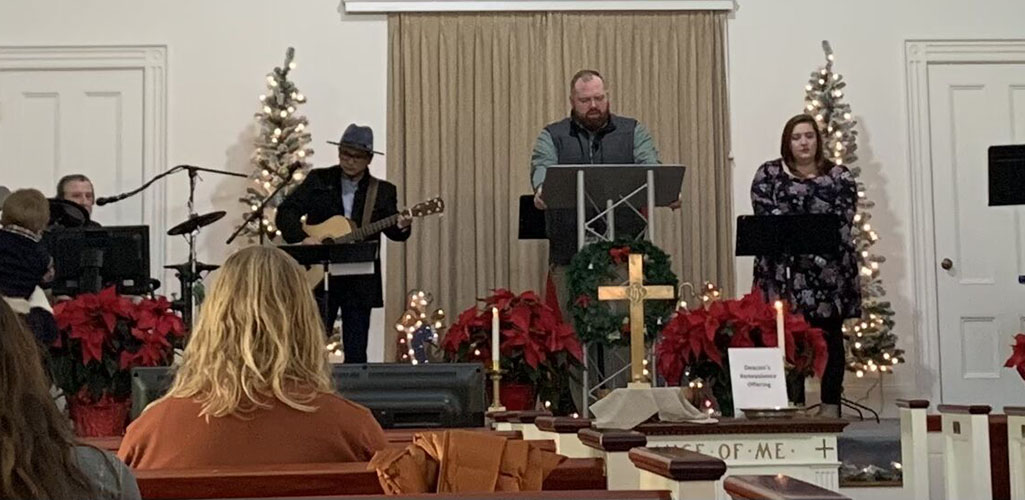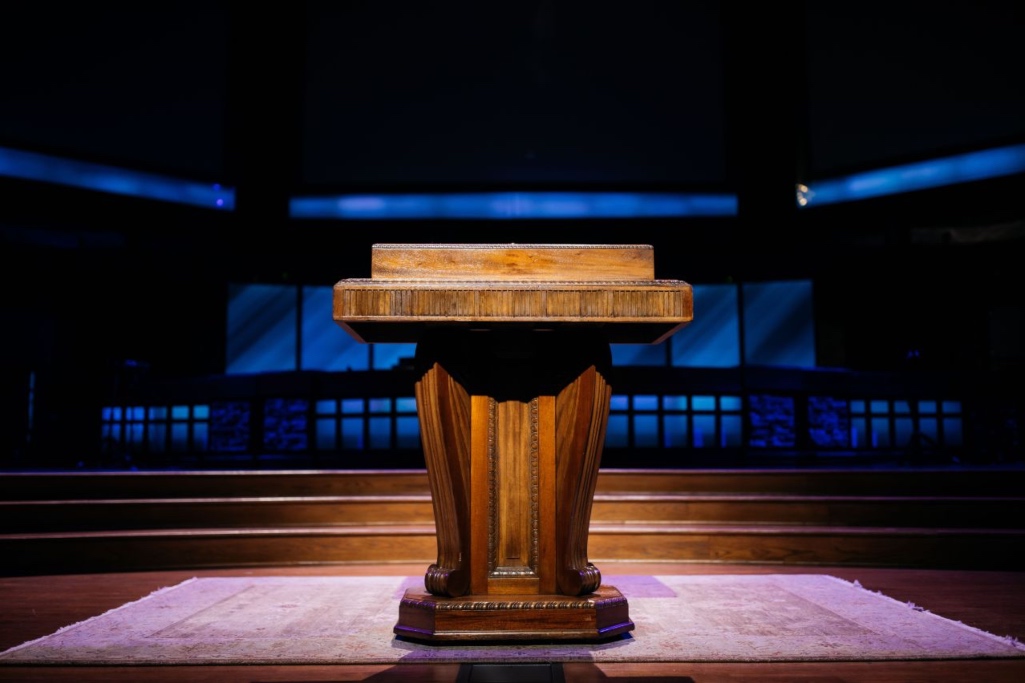When Branton Burleson first came to Grace Baptist West Asheville, the church was in steep decline. Now, more than four years later, he says “Grace is really a revitalization itself.”
“It’s almost moved from a revitalization to a replant,” he notes, as church priorities and structure have shifted.
Burleson credits a lot of this change to meaningful membership. Inactive membership is not in their vocabulary. “You don’t have to have the title of pastor in our church in order to have opportunities to lead and serve,” says Burleson.
Growing up in the church, Burleson is well-accustomed to church culture and the heavy reliance many churches place on their pastors.
“When a pastor leaves, churches often decline, and they limp along until they find another leader. I want to change that,” says Burleson. “I want to broaden the base of leadership in our church beyond that. If I really love my church, I’m going to build its leadership beyond myself.”
As a biblical professor himself, Burleson touts the importance of the biblical education found at Bible colleges and seminaries, but he emphasizes that they are “not a replacement for local church training.”
“The primary training ground for leadership in ministry is the local church. Local churches make pastors,” he says.
LEAD, which stands for leadership, evaluation, assessment and development, was born out of this vision. In October 2021, Grace Baptist West Asheville established LEAD, a 6-month commitment open to any member of the church, male or female, seeking focused discipleship and investment from the elders of the church and, primarily, Burleson himself.
LEAD meets every Sunday for two hours and utilizes a cohort model. While direct instruction is given by Burleson, participants spend a lot of time in personal study, reading assigned books to enhance their learning and then presenting to their cohort, where they receive feedback and critique from one another.
It is currently entering the end of its second cohort, and since the program’s inception, 16 members have gone through this leadership pipeline. Each month of the program focuses on a different emphasis: Conversion, Calling, Character, Competence, Conflict and Criticism, and Compatibility and Chemistry.
In the first three months of the program, participants explore what it looks like to be a follower of Christ, how they are called both internally and externally and how their own character measures up to the qualifications for ministry found in Titus 1 and 1 Timothy 3.
During month four, participants evaluate their own skills, abilities and spiritual giftedness in ministry. Month five addresses how to deal with conflict and criticism, and the final month is all about compatibility and chemistry within the organizations, teams and ministries in which participants could lead and serve.
“Someone coming in may say, ‘I don’t know where God wants me,’” says Burleson, but his goal is that they don’t leave that way.
Burleson hopes participants gain clarity about where God has called them to serve in ministry leadership. At the end of each 6-month cohort, he meets individually with each participant and provides recommendations for next steps following LEAD, such as pursuing further education, gaining more experience, pursuing a ministry role or even mending an area of their personal life.
“People may come out of it interested in pursuing being a teacher, or counselor, or missionary or even a faithful disciple in their own home, and if that happens, it’s still successful. You don’t have to have a title to be a leader in ministry,” says Burleson.
Jerry Duckworth, a former participant of LEAD, says that he was challenged by the servant mindset of the program. “I shouldn’t wait until I’m a deacon to serve. I shouldn’t wait until I’m an elder to disciple people,” says Duckworth.
Duckworth feels he has become more devoted to the local church as LEAD has strengthened his “understanding of the local church as a covenant community,” where he believes he has an important part to play. “I’m praying for my church family, calling my church family, supporting my church family in any way that I can, loving them and holding them accountable to walk as Christ would have us walk,” says Duckworth.
Now that he’s completed LEAD, Duckworth says he’s more equipped than ever as a believer, leader of his home and church and as a participant in the Great Commission.
Ultimately, Burleson states that the main goal of LEAD is to raise up leaders like Duckworth internally, “keep some and then send some out.” While churches sometimes gravitate toward an inward focus, Burleson believes that keeping a reproducing mindset turns a church’s focus outward toward mission, and he believes this is a key ingredient to a growing and thriving church. “If reproduction is not somewhere in the culture of the church, then it’s only a matter of time until they recline, decline and eventually die,” says Burleson.
“The Lord, He’s about His kingdom, not just the local church.”
Burleson references Matthew 6:33, “It’s like the Lord says, seek first the kingdom of God … and all these things will be added to you.”
When asked what is next for Grace Baptist West Asheville, Burleson says they hope to launch a pastoral residency later this year or early 2023, and they have already received some interest.
“The pastoral residency hasn’t officially launched,” but with partners like N.C. Baptists and the Pillar Network, Burleson says, “we are getting very close.” Until then, Burleson says he will continue to call his church to something he feels is counterintuitive to “invest, give and go” and watch as God increases and multiplies their efforts. And LEAD is just the beginning.
(EDITOR’S NOTE – Kari Wilson is a contributing writer for Baptist State Convention of North Carolina communications.)


